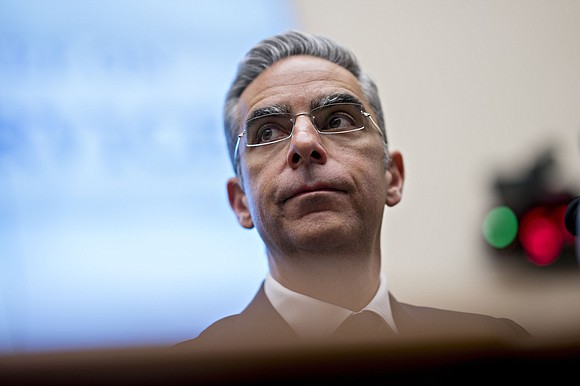Facebook's Libra could massively help the cryptocurrency industry — or hurt it badly
CNN/Stylemagazine.com Newswire | 7/29/2019, 1:12 p.m.

By Clare Duffy and Shannon Liao, CNN Business
(CNN) -- Facebook's Libra cryptocurrency worries lawmakers. And increased government scrutiny for Libra could dent plans not only for Facebook but for other cryptos as well.
Others in the field worry lawmakers' distrust of Facebook might prompt harsh regulations that could stunt the nascent crypto industry's growth.
When Libra exploded onto the cryptocurrency scene last month, it brought attention to a sector that's been growing quietly and operating without clear regulations for a decade. Suddenly, lawmakers on both sides of the aisle were talking publicly about cryptocurrency and stressing the need to regulate it: Democratic Congresswoman Maxine Waters, Federal Reserve Chair Jerome Powell, Treasury Secretary Steven Mnuchin and even President Donald Trump.
Now that Libra has captured the attention of the world — and the world's regulators — investors and consumers of bitcoin and other cryptos are closely watching Libra as the microscope gets focused on their largely unregulated world.
"We want lawmakers to know it's a much more intricate industry [than just Facebook]," said Kristin Smith, director of external affairs at the Blockchain Association, a group founded last year to unite and advocate for the industry. "Facebook just doesn't have a good reputation on the Hill. We didn't want to inherit the legacy reputational problems they have."
Prior to the Libra announcement, the Blockchain Association had been working for months to introduce policymakers to the cryptocurrency industry — explaining how it works, its benefits and how they might effectively oversee it. The core group of lawmakers wanting to learn about the sector was growing steadily.
Libra adds more urgency to that work.
Lawmakers are concerned in part that Facebook's massive and global reach could make Libra a gateway for many new people into the larger crypto sector. That could potentially have negative effects on traditional financial systems — but it could also be good for the growth of the larger crypto industry. For example, if a person receives Libra from a friend on Facebook, they could trade it on an exchange for bitcoin or another digital currency.
Meanwhile, others working in the crypto industry in the United States also welcome the fact that Libra is pushing lawmakers to clarify legal guidelines.
The cryptocurrency sector has grown to become a multibillion-dollar market over the past decade. Other countries like Switzerland, where Libra's governing body will be headquartered, have laid out clear regulations for how digital currency companies and users must operate. But in the United States, crypto companies must try to comply with a smattering of state and federal regulations. That makes operating a crypto company expensive and difficult, because it can require paying a legal team to spend months ensuring the company is compliant with unclear regulator guidelines.
"The market has been asking US regulators to give us certainly on regulations for at least three years, if not five years," said Dave Hodgson, director of blockchain investment firm NEM Ventures. "It will be a positive thing no matter how regulation falls, because we'll get some clarity."
But some in the crypto industry fear that new regulations could go too far.
The first hurdle for policymakers is simply understanding the differences between various cryptocurrencies, said Jerry Brito, executive director of the think tank Coin Center.
"The danger is that regulators, legislators and policymakers will be confused. They might paint Libra and bitcoin with a broad brush," Brito said. He added that lawmakers will probably be able to more tightly control Libra, which was started by Facebook and will be run by a designated organization — while bitcoin is powered by computers around the world and has no central authority.
Some worry that cryptocurrencies will get classified as a security, something lawmakers suggested doing with Libra during two Congressional hearings earlier this month, which would require them to make SEC disclosures that some feel are unwarranted or would even be impossible to implement.
"With bitcoin, nobody owns it, nobody runs it," said Brito. "There's nobody who could credibly be the one to make those disclosures about bitcoin."
After lawmakers raised concerns at the hearings about Libra being used for money laundering or to finance terrorism, Blockchain Association's Smith said she's also worried they could create new regulations around those issues. Many US crypto companies already comply with the same anti-money laundering and "know your customer" rules as banks do, and new policies in this area could mean entirely changing the way their businesses are run.
"People have built their entire compliance networks within the existing system," Smith said. "If they were to upend that system, everyone would have to rebuild from scratch."
The worst-case scenario, she said, would be an effort by lawmakers to ban digital currencies altogether. But others, like Hodgson of NEM Ventures, think that's unlikely as it would only put America at a disadvantage while the crypto industry grows.
"Realistically, the exchanges would just move offshore," Hodgson said. "The US is big, but it's not the only part of the crypto industry."
On Tuesday the Senate Banking Committee is set to hold a hearing examining regulatory frameworks for digital currencies, a follow-on from an earlier hearing on Libra. How it goes could offer further indications of how lawmakers plan to treat Libra, and it could signal whether potential regulatory changes will help or hurt the crypto industry.



